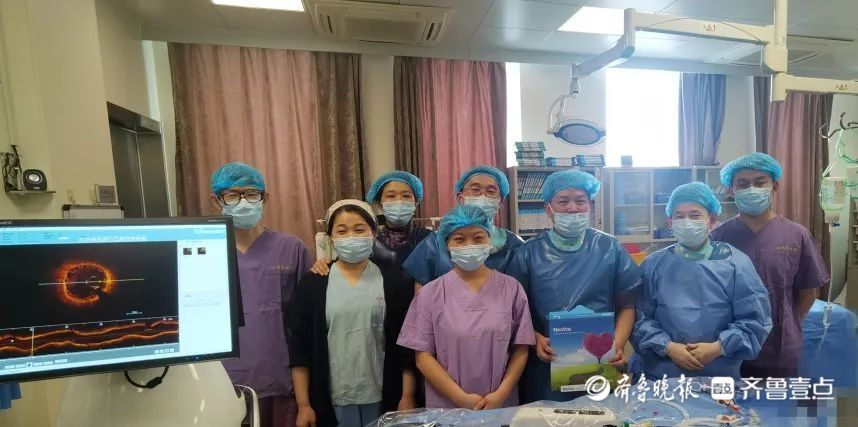Qilu Evening News, Qilu One Point reporter Xu Yan correspondent Wen Jing
Coronary heart disease is known as the “number one killer” of human health. An annual increase of about 330,000. In most people’s cognition, the stent is a “foreign object”, once it enters the body, it needs to be carried for life. This has troubled some patients, especially young and middle-aged patients with coronary heart disease, until the advent of “biodegradable stents”, which brought good news to many patients.
43-year-old Mr. Sha underwent coronary angiography in the third ward of the Department of Cardiology, Rizhao City People’s Hospital due to repeated chest pains. The results showed that there was a severe 85% stenosis in the middle of the left anterior descending artery, which was determined by FFR. The result was 0.75 and further intervention was required.
In order to prevent the risk of myocardial infarction that patients may face, Zou Jianfeng, director of the third ward of the Department of Cardiology of Rizhao People’s Hospital, organized the coronary artery team of the department to discuss together, considering various factors such as age, and combining the patient’s wishes to decide to give implantation A fully degradable bioabsorbable stent was inserted, and this technology was the first application in Rizhao People’s Hospital.

Finally, Zou Jianfeng combined optical coherence tomography (OCT) to confirm the blood vessel diameter, lesion length and blood vessel calcification degree. Pre-expanding balloon, cutting balloon and high-pressure balloon were used to fully pretreat the stenotic lesions, and a degradable stent was successfully implanted in the anterior descending artery.
After operation, OCT was used for examination, and through the evaluation of various conditions of the patient, the patient’s stent adhered well, the stent expansion rate was satisfactory, no hematoma and dissection occurred, and the operation was successfully completed.
At present, Mr. Sha’s chest pain has been completely relieved and he has been discharged from the hospital. The patients and their families expressed their most sincere gratitude to the meticulous treatment and care of the general practitioners.
According to Zou Jianfeng, coronary interventional surgery, as one of the important means of coronary heart disease treatment, has gone through three historical stages: the era of simple balloon dilation, the era of bare metal stents, and the current popular metal drug-eluting stents. era. Due to its non-degradable metal material, it remains permanently in the body after implantation, and there are certain health concerns in terms of late thrombosis and in-stent restenosis. After years of research at home and abroad, bioabsorbable stents came into being.
“Bioabsorbable stents are known as ‘the fourth revolution in coronary interventional therapy’. For young and middle-aged patients with coronary heart disease, this is indeed a good news. The intervention team of the three wards of the Department of Cardiology completed The implantation of bioabsorbable stents has also become the ‘fourth revolution of coronary intervention in Rizhao People’s Hospital'” Zou Jianfeng said, this new stent can be completely degraded into water and carbon dioxide within 2-3 years after entering the human body. “There is no foreign body residue in the blood vessel, which avoids the safety risk caused by the permanent residual metal stent in the body, and at the same time enables the blood vessel elasticity to be better restored.” The district is a key medical discipline in Rizhao City. It is characterized by coronary heart disease, angina pectoris, myocardial infarction, hypertension, heart failure, arrhythmia, congenital heart disease and other diseases, especially in the interventional treatment of coronary heart disease. experience of. The Cardiology Department of Rizhao People’s Hospital is not only a key medical discipline in Rizhao City, but also a national chest pain center, providing 24-hour comprehensive chest pain treatment services for the majority of chest pain patients, winning precious opportunities for patients’ treatment and protecting the heart health of the people in the city. convoy.